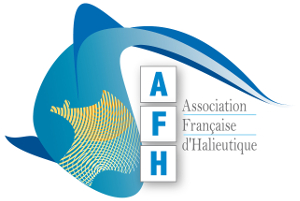18 months, starting between spring and autumn 2015 (position open until filled)
Based in Lyon, France, Irstea, laboratoire Maly/dynam « Dynamiques et Modèles en Ecohydrologie » (http://www.irstea.fr/dynam), with visits in Paris, Bordeaux, Nantes.
Net salary 2060 €/month
Send a CV and short e-mail/letter to nicolas.lamouroux@irstea.fr.
Many time series of animal abundance are 1) non-stationary and influenced by a variety of environmental drivers and 2) characterized by important noise associated with the limits of sampling. This is particularly relevant for times series of freshwater and marine fish populations. Freshwater fish populations of large rivers and estuaries are influenced by combinations of discharge history, hydraulics, thermal conditions and water quality parameters. Marine fish populations depend on climatic factors, fishing efforts and legislation. Densities of both freshwater and marine populations are estimated using repeated counts (electrofishing points or net catches) that are characterized by a strong overdispersion and provide uncertain estimates of actual densities.
Analyzing environment-density relationships for such populations using conventional correlative analyses is challenging due to the multiplicity of environmental drivers and large sampling noise. Symbolic time series analyses, which are based on symbolic recoding of the biological and environmental time series and the analysis of their mutual information, are attractive alternatives in such conditions (Daw et al. 2003). However, these methods have not been frequently tested in ecology (Cazelles 2004; Moison et al. 2009).
We propose to revisit fish-environment time series available in three extensive data sets (Rhône river fish populations; Gironde estuary fish populations; Atlantic marine fish populations) using non correlative approaches such as symbolic analysis. These data sets are characterized by relatively long time series and/or repetitions in space, and include detailed environmental characteristics that are expected a priori to influence fish responses (Daufresne and Boët 2007, Chaalali et al. 2015, Daufresne et al. 2015, Lamouroux et al. 2015).
The post-doctorant will have the opportunity to visit and exchange with a supervision committee, which includes a specialist of symbolic analysis and the researchers that collected and/or organized the ecological datasets. The post-doc will be based in Lyon, France, in a team specialized in ecohydrology and modelling, with the possibility of frequently visiting the supervising committee in Bordeaux, Nantes, and Paris. The position is financed by the « Hynes » joint team project (Edf and Irstea).
The post-doctorant will have skills in complex data analysis, statistical modelling and programming, with preferably some experience in aquatic ecology. She/he will be interested in the ecological questions associated with the statistical developments.
Supervision committee
N. Lamouroux (fish in large rivers, Irstea Lyon) – Main supervisor
B. Cazelles (symbolic analysis and ecological modelling, Université Paris VI)
P. Boet (fish in estuaries, Irstea Bordeaux)
V. Gouraud (fish in large rivers, Edf, Chatou)
M.J. Rochet (Marine fish, Ifremer, Nantes)
M. Daufresne (fish in large rivers, Irstea Aix-en Provence)
JM Olivier (fish in large rivers, Université Lyon 1)
